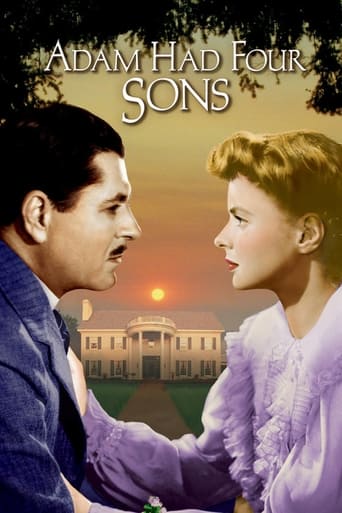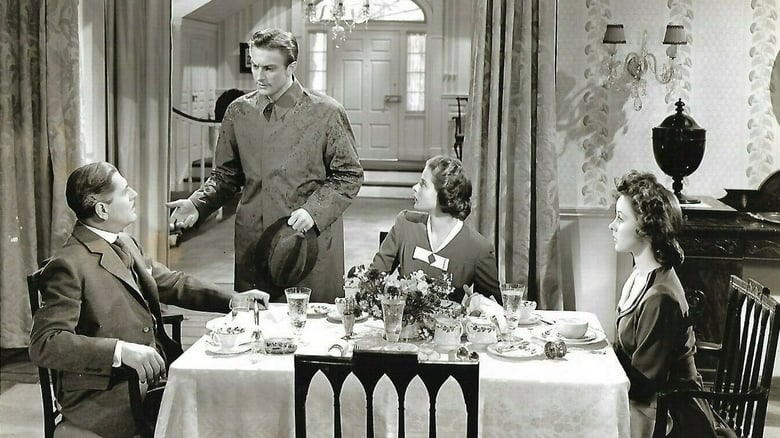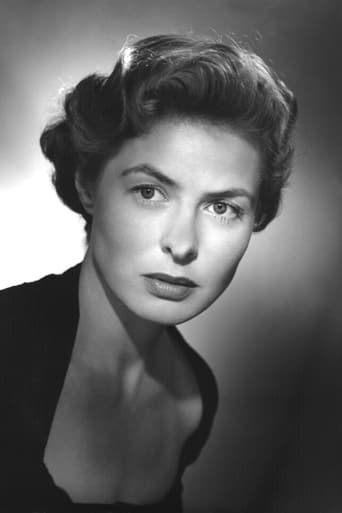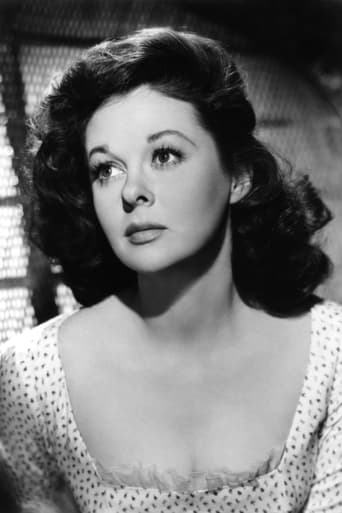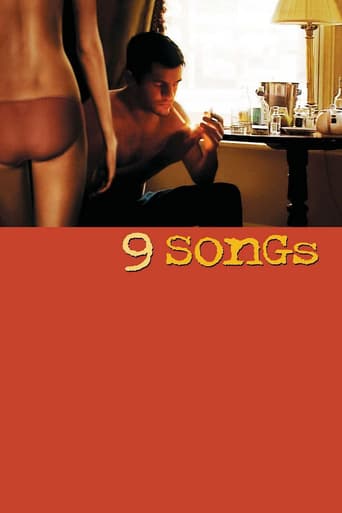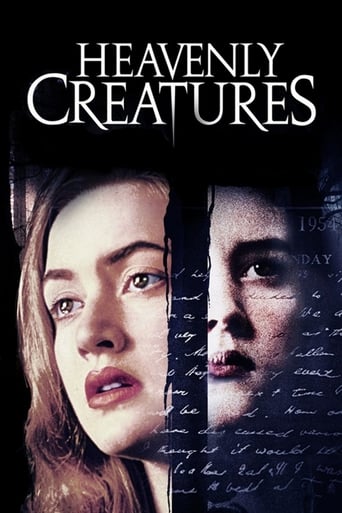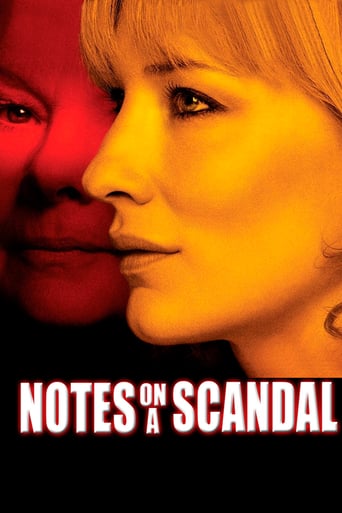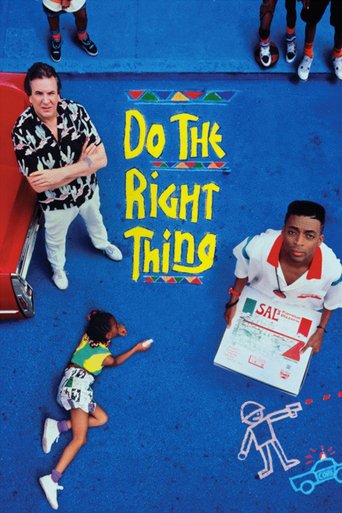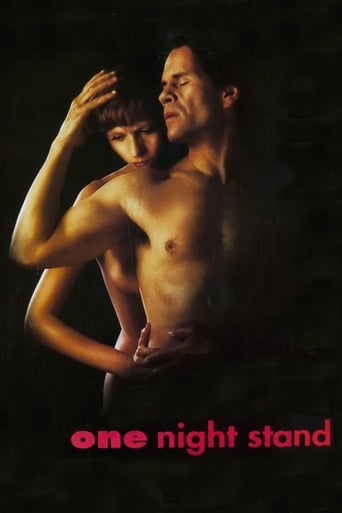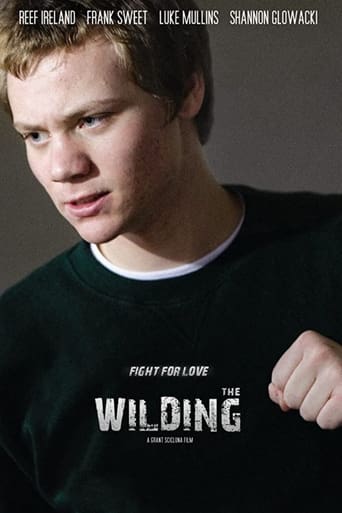Adam Had Four Sons (1941)
Emilie has been hired to care for the four sons of wealthy Adam Stoddard and his wife, Molly. After Molly dies, Adam and the boys grow to depend on Emilie even more. At the same time, Emilie falls in love with Adam. The boys grow up, but Adam insists that Emilie stay on as part of the family. Her relationships with both the boys and Adam become strained after one son marries a gold-digging viper named Hester. Written by Daniel Bubbeo
Watch Trailer
Free Trial Channels
Cast


Similar titles
Reviews
To me, this movie is perfection.
Really Surprised!
It's a mild crowd pleaser for people who are exhausted by blockbusters.
It really made me laugh, but for some moments I was tearing up because I could relate so much.
Once again, I dissent from the majority. I thought this was a very good film, and it didn't really go where I was expecting it to go at the beginning of the film.Warner Baxter portrays the wealthy businessman whose loving family finds hard times after his wife dies and the stock market crashes (not the 1929 crash). Their governess, who had recently come from Europe, strives to keep the family together, but the hard times results in the father and the boys moving into an apartment, and the governess (Ingrid Bergman) returning to Europe. Over time, the business climate improves and the father buys back his house, but now the boys are off to war...but not before one of the boys marries Susan Hayward. The problem is that Hayward is a conniving slut. Bergman attempts to cover up the indiscretion of one son with the other son's wife in order to keep the family together. In the end, Hayward is found out by all, is forced to leave the family, and all (except Hayward) live happily ever after -- particularly Bergman and Baxter. Some viewers will be bothered by the extreme age difference between Warner Baxter and Ingrid Bergman. I'll be honest, this is the first film in which I really noticed Warner Baxter. He did a very fine job in this role, but I was startled at how closely he resembled an older Ronald Colman (without the accent, of course). Bergman is also very fine here, and it was a very positive role for her. It was impossible to like Susan Hayward in this role, not only because her character was the villain of the film, but frankly, I felt her acting was almost childish. Fay Wray was fine as the dying wife. Richard Denning turns is a good performance as one of the sons. The other actors did their parts well, though not exceptionally.If there's a criticism here it's about Warner Baxter's character (not Baxter's acting). The father figure seems terribly naive at times, although perhaps he needs to be for the script.Recommended as a very good film. In fact, I think I'll buy a copy for my DVD shelf.
There are some plot gaps in 1941's "Adam Had Four Sons," possibly because 25 minutes have been cut. As it is, it's an okay film thanks to the performances.At the beginning of the 20th century, Ingrid Bergman plays Emilie, a young foreigner hired as a governess for the Adam Stoddard family's four boys. Everyone takes to her immediately, and she becomes one of the family. Unfortunately, tragedy strikes the family when the boys' mother Molly (Fay Wray) dies. Then there is a reversal in the stock market, and Adam Stoddard (Warner Baxter) loses his business. His aunt (Helen Westley) puts up the money to send the older boys to school, and Stoddard has no choice but to sell his house and move into an apartment with the youngest boy, Phillip. He has to send Emilie back home, but he promises that as soon as he can, he will send for her to return.Years later, before World War I, Adam sends for Emilie, and she comes back. The three older boys, and eventually Philip, all fight in World War I. One of the boys, David, brings home the manipulative, trashy Hester (Susan Hayward) as his wife, and she lives in the house while he is away. Emilie has her number right away. Hester has an affair with the oldest son, Jack (Richard Denning), and, so Adam will not find out, Emilie claims that it was she that he saw in Jack's room.Well, the big question any viewer will have is, why did Adam send for Emilie to return when his kids were grown and, in fact, about to go off and fight a war? And what the heck was Emilie doing all those years? This may be what is missing in the 25 minutes that were cut. My hunch is that Emilie continued to work as a governess, and probably even turned down a couple of offers of marriage, because she had fallen in love with Adam. When he sends for her, it's because he needs her to run his household. But I'm guessing because we see none of that.Ingrid Bergman is beautiful and charming, and she has excellent scenes with Susan Hayward, who is a real spitfire. Richard Denning makes a strong impression as Jack, and Warner Baxter is very good as Adam, a gentle, optimistic man who loses his beloved wife. Fay Wray is the wife, and she, too, is quite beautiful but doesn't have a huge role.This is an enjoyable movie if you fill in the story so it makes sense.
In this, Ingrid Bergman's second American film, she once again plays the nubile love interest of a much older man (as she did with Leslie Howard in INTERMEZZO, which was a remake of her Swedish film by the same name). This is a period film, made in the 1940s, it is set back before WWI, so it has that "old world" feel about it, and her accent is used to great advantage, as she plays a nanny from "the old country." In the 1940s many many films had a rosy remembrance of the 1890s and early 1900s, just as today we have sweetened remembrances of the 70s, like " Almsost Famous" a film that turns a band-following sleeze into some mythological dream girl/woman of easy sex and maternal sweetness. (Ah yes, the early 2000s, they will be saying in the future, where once again, the only purpose of a girl in a film is to be a willing vessel for a man.) But I digress which your mind might do during this film, because it is a pretty bland and predictable story, despite the catty game playing of a young Susan Hayward. It's also a little ikky by today's standards, when we realize that we are supposed to be rooting for Ingrid to pair up with a man who looks at least 30 years older than she is. But we must remember what financial stability meant in a post depression era world.Susan Hayward has a very interesting role here. It became a prototype for her later roles, sexually and personally aggressive, and morally bankrupt. It is also interesting because you can see her acting never really changed or progressed. She had everything here in this powerhouse performance that she had as an older actress. Lots of strength and pizazz, not much nuance. (Watch VALLEY OF THE DOLLS, and she is interchangeable just older, with a better script.) Consequently, this film gives us a stark contrast between Hayward & Bergman, heightened by this contrast in acting style. Susan Hayward hits you over the head while you're on the doorstep. Ingrid quietly lets you come inside. This makes their scenes like fire and ice, and wisely, the filmmakers let the story build to a confrontation between them. That is the best part of this film at heart a woman's story.Being that this is essentially a woman's story, it is oddly overrun with little boys and men, older men and little boys who need to be looked after and catered to, young men in uniform who parade in like colorful birds who need to be looked after and catered to. Ah yes, the war years.One real irony here is that Susan Hayward's character is introduced in uniform. It is not commented on at all, but instead of this conferring respect on her, we know immediately that this shorthand means she is hard, aggressive and probably sexually promiscuous. Definitely NOT what those boys were fighting for; they may have wanted Susan in the field, but they wanted Ingrid to come home to. Amusing in retrospect, and also a frustrating reminder that women who give their lives in service to their country are still regarded with an odd mixture of intangible suspicions.Somewhere in this mix is Fay Wray (I didn't recognize her) She played the sainted, oddly healthy looking mother of the boys who dies. In the titles she is identified only by her first name, and the mother is never called by the first name within the film, it is "mother" or "Mrs.". I can only assume that audiences at this time would have known her on sight, so they couldn't conceive that one day people would be trying to figure out which one she was. Wray did a lot of work on the stage, and actually kept pace with the times, acting-wise she grew, and her work fits nicely with the more subtle work of Bergman. It is her features and profile that pinpoint her as a beauty of the silents and early talkies. Very similar build and look to Gloria Swanson.Solid, studio bound production from this period, with some unexplainable gaps of logic in the story and large gaps of time left unmentioned. This period of films was a little suffocating even for those who like it, so you can probably skip it unless you really want to see the early work of Bergman and Hayward.
*** Possible Spoilers*** When Adam needs a new governess for his four sons, he and his wife hire a French governess to take care of them. The wife soon dies and over the years she becomes the mainstay of the home, in spite of a stock market crash, World War I and the straying wife of one of the boys. A good effort by all, including a young and manipulative Susan Hayward. Given the era, some of the content was surprising and the story was by no means a conventional epic. It had been some time since Warner Baxter was a big star, so this fine performance by him is a welcome reminder of his previous successes.

